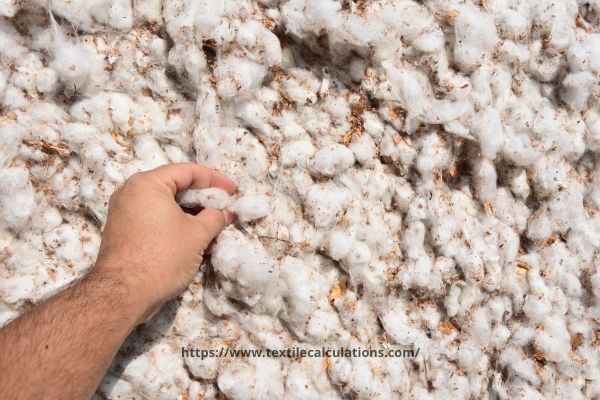Waste in Yarn Manufacturing:
In the yarn spinning department heads must alert all the staff members to locate exactly the sources and causes of the origin of such waste and plan out ways and means (by installing waste containers, by proper housekeeping, by modifying undesirable worker practices, and by improving handling and transport methods) to keep the wastes under control. Suitable display boards in bold writing at different places may also be put up to draw the attention of everyone constantly.

In the following table, we will show the norm for waste in yarn manufacturing in the different labels of yarn processing.
| Types of waste | Norms | Remarks |
| Blow room waste | 1.25 times the trash in mixing | For a cleaning efficiency of 75 to 80 percent, lint in waste should not exceed 33 to 40 percent. |
| Card waste | 4 to 5 percent for foreign cotton and 5 to 6 percent for Indian cotton | Flat speed 50mm.Use of continuous strippers, or metallic clothing results in a 1 percent to 1.5 percent reduction in waste. |
| Comber waste | 10 to 12 percent | Depends on yarn strength, type of cotton used method of lap preparation, and fractioning efficiency of comber. |
| Hard waste in ring spinning, reeling and winding | 0.5 percent | Spoiled doffs soft. Bobbin s, bad bottoms, etc. should be controlled. |
| Sweeping and clearer waste | 1.5 percent | (1) Pick waste before sweeping instead of sorting afterward (2) provide operatives with bags and discourage them from throwing waste on the floor. |
| Card web and lap | 0.7 percent | An allowance of 12 cm. per lap and 8 meters of sliver per card per strip. |
| Sliver in combers and lap former | 1.0 percent | Stoppages of combers due to roller lapping and sliver breaks assumed to be 2 per comber hour. |
| Drawing sliver | 0.5 percent | Two passage breaks per 100 delivery hours assumed to be 8 in the first head and 4 in the finished head. |
| Speedframe sliver and roving ends | 1.0 percent | Two processes. Breaks per 100 spindle hours assumed to be 4 in inter and 3 in roving. Creel only when at least one-half of the bare bobbin in visible. |
| Ring frame , bondas and pnuemafil | 2.5 percent | Depends on the end breakage rate and work assignment and supervision. |

